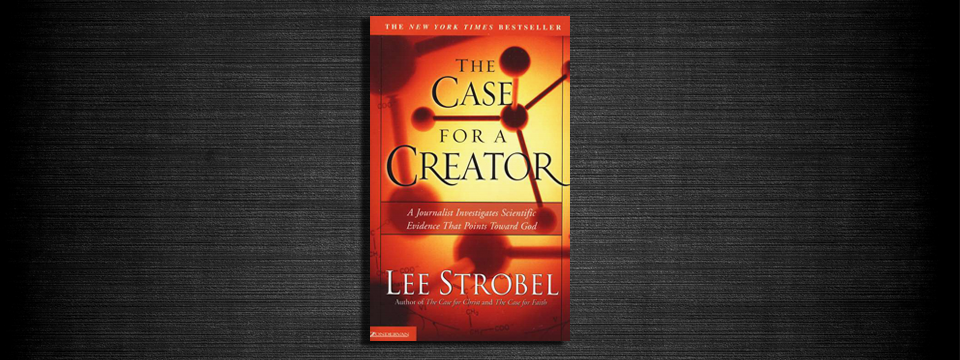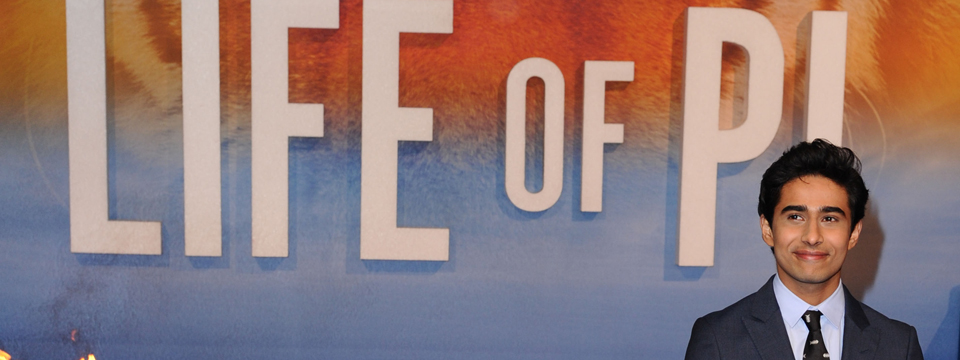
by Laura Wilcox | Feb 19, 2013
Many readers have heard of Lee Strobel’s popular apologetics book The Case for Christ, but not everyone is familiar with its predecessor, The Case for a Creator. In this book, Strobel travels across the United States interviewing some of the country’s most esteemed professors from a wide range of prestigious universities, both Christian and public. By collecting the proofs from experts across the board, Strobel pieces together the scientific proof that today’s most widely accepted theories on the Earth’s origin cannot work in tandem without a divine creator.
Strobel was not always interested in apologetics. He received a journalism degree from the University of Missouri and a Master in Law Studies from Yale University. Strobel then pursued a successful career at the Chicago Tribune where he worked as an investigative reporter. Strobel, a firm atheist at the time, began an investigative study on the scientific and historical proof of Christianity after a debate with his wife, a devout Christian. Strobel’s investigation led to his conversion of faith and several books, four of which have received the ECPA Christian Book Award.
One of the things I value most in Strobel’s writing is straightforward approach. Many of the experts Strobel interviews explain their work in field-specific jargon, and Strobel does not water down these theories. I find this to be the most honorable quality of the book as it lends credibility of his interviews and allows me to dive into the research for myself without being told the conclusion in elementary terms. The Case for a Creator also presents an appreciated diversity of interviews. Strobel speaks with Christian, atheist, and agnostic professors in capturing an objective collection of scientific proofs that do not blatantly align with a particular agenda. As a college student, I am all too aware of the hidden bias professors often have and find Strobel’s source diversity a refreshing point of credibility.
While I respect Strobel for not dumbing down the theories he presents, I think his case could be stronger if he expanded more on the implications of the scientific data he collects. If you are not a molecular biologist, astrophysicist, or theoretical physicist, many of the professor’s explanations will go over your head. Strobel does an excellent job of presenting expert theories and highlighting conclusions but fails to link the two in a way that general audiences will understand.
Although Strobel’s book is at times difficult to digest, I would recommend it to anyone who is interested in dabbling with apologetics. I would especially suggest this novel to college students, as it relies on a collegiate-styled research method that will be familiar. His sources are credible and objective, which lend to his airtight argument for a creator. While the book may require outside research on the part of the reader to better understand some of the more complex theories he mentions, it is well worth the time in providing a solid foundation for Christianity’s Case for a Creator.

by Brian Hobbs | Feb 19, 2013
What if Castaway met We Bought a Zoo, which met New Age religion, which met National Geographic of animals, which all then met the movie Joe Versus the Volcano? That essentially what you have in the new movie, Life of Pi.
Based on the best-selling book by Yann Martel (published in 2001), which was part of Oprah’s recommended book, the movie is gaining popular and critical acclaim.
To its credit, Life of Pi is a story that immediately takes you in. At risk of spoiling the plot, we meet a young Indian boy (“Pi”) whose family owns a zoo. Due to bad circumstances, they must move to North American and en route their boat sinks.
The rest of the movie we sees Pi’s struggle to survive, which includes some stunning cinematic images of animals and nature. There is a plot twist at the end too that would make M. Night Shyamalan proud.
Be that as it may, the movie is just plain gross in places. Its PG rating is too low (should have been PG-13), and the way it treats religion is plain dangerous.
The storyline essentially tries to put Jesus Christ on a shelf with millions of other gods, sadly not a rare phenomenon in the Eastern, New Age world. As other movie reviewers have pointed out, the movie is syncretism on the silver screen. Jesus, however, is not A way to God, He is THE way (John 14).
Young adults and especially children would have too much difficulty not being riveted by the storyline and movie, so the movie is subversive. In spite of some good qualities, Life of Pi is not a movie I can safely recommend.

by Ashley Haupt | Feb 13, 2013
Anyone who’s read me for long knows about my year long study of grace. That was a necessary journey for me, and one that has forever changed the landscape of my soul. You cannot draw near to the exquisite grace of God and come away unscathed.
However, for some time now, I’ve been drifting just a bit, struggling with desire and motivation. Praying for direction and guidance and grace for my weaknesses, yearning to see sanctification at work. I do believe now there was a hole in my holiness.
I purchased this book for Tim for Christmas. I thought my motives were pure in getting him a gift, but it possible that I was intrigued by it myself, because it wasn’t far into January before I picked it up and began reading.
From chapter one, Mind the Gap, to chapter ten, That All May See Your Progress, the author, Kevin DeYoung, seemed to be preaching directly to me. In me, there was a gap, it needed to be minded, and I felt that gap gloriously bridged through the reading of this book.
We can carry around connection confusion in our minds without being fully aware of it until some of those vital intersections meet. So it was with me. After immersing myself in a (very necessary) study of grace, I had some lingering confusion over these issues:
- the place of Law now in our lives as Christians
- how to practically pursue holiness with an understanding of grace
- what it looks like for grace to be at work in me
- striving, effort, and hard work in the Christian life
- separating holiness from legalism, pursuing the one and rejecting the other
DeYoung answers all of these questions and others that I didn’t even know I had until I read. I believe this book contains a vital message that fuels believers with conviction for the holy lives God is calling them to lead. I needed that. I didn’t know how much until I started reading.
I have to restrain myself from over-quoting this book, but I’ll just end with one helpful quote about the use of Law in our lives now that we are blood-bought believers.
“We usually think of law leading us to gospel. And this is true–we see God’s standards, see our sin, and then see our need for a Savior. But it’s just as true that gospel leads to law. In Exodus, first God delivered his people from Egypt, then he gave the Ten Commandments. . . I simply want to show that the good news of the gospel leads to gracious instructions for obeying God.“
If you are interested in purchasing this book (and I recommend it highly!), simply click on the quote above to find it available at Amazon in print or kindle/nook.
Originally blogged at Little Pieces of Ordinary.


